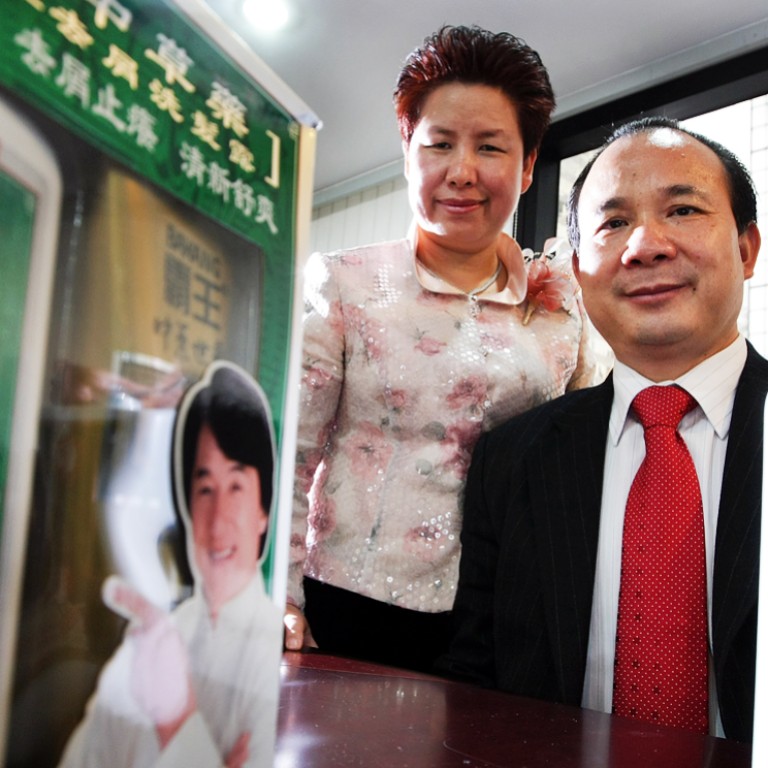
Magazine's claims had 'cancerous' effect on shampoo maker, court told
Magazine allegations about carcinogenic ingredients hit maker's shares hard, court told
A article had a "cancerous effect" on the prospects of mainland herbal shampoo maker BaWang International as its accusation that its products caused cancer led to a share price slump, the High Court heard yesterday.
Barrister Jason Pow SC, for BaWang, opened the case for his client's HK$500 million-plus defamation claim against the Hong Kong magazine's publisher over an article on July 14, 2010, which claimed that BaWang's shampoos contained carcinogenic substance 1,4-Dioxane.
The court heard BaWang's revenues reached 930.8 million yuan (HK$1.17 billion) in the first six months of 2010, a year-on-year rise of 36.7 per cent. Its profits also went up by 47.1 per cent.
"[The financial statement] shows how beautiful the prospect of the plaintiff's business is shortly before the publication of this article," Pow said.
Pow also drew judge Mr Justice David Lok's attention to a Bank of America Merrill Lynch analyst report that painted a rosy picture of BaWang's growth before the article was published.
However, the share price of BaWang, which used movie star Jackie Chan to promote its products, slumped by 20 per cent following the publication of the article, Pow said.
The barrister also accused , represented by Benjamin Yu SC, of failing to include BaWang's response to the allegation that three shampoos tested by the magazine contained 10 parts per million (ppm) 1,4-Dioxane.
The company's reply had included suggestions by the Occupational Safety and Health Administration in the United States that it was acceptable for consumer goods to contain up to 100 ppm 1,4-Dioxane.
On the evening of July 13, 2010, a team of journalists stormed BaWang's premised in Guangzhou, the court heard. The manufacturer's staff arranged a phone interview for a journalist with chief executive Wan Yuhua.
Pow said staff also lined up an interview for the journalists with the Guangdong Chamber of Daily Used Chemicals.
He added that the article painted "hardly a full picture" of efforts BaWang made to address allegation.
The magazine's editor-in-chief, Lee Chi-ho, was in court yesterday. The trial continues.
